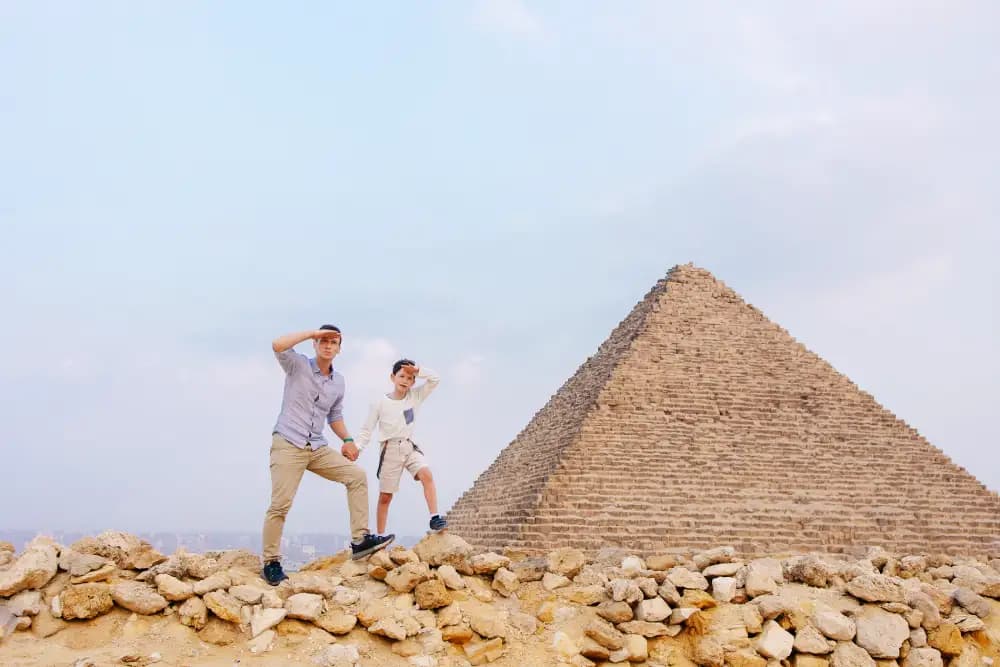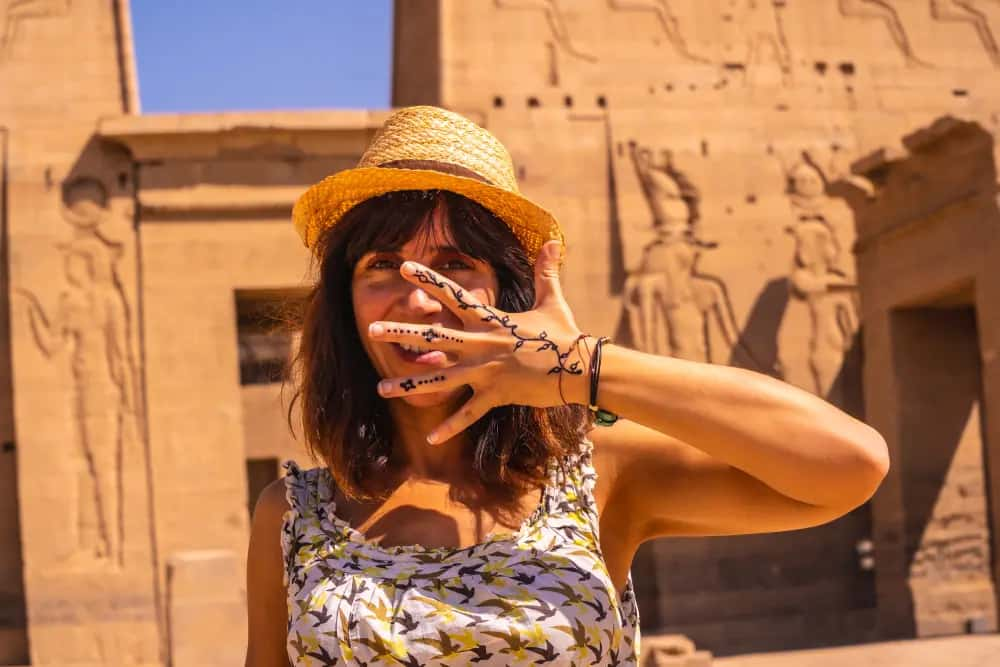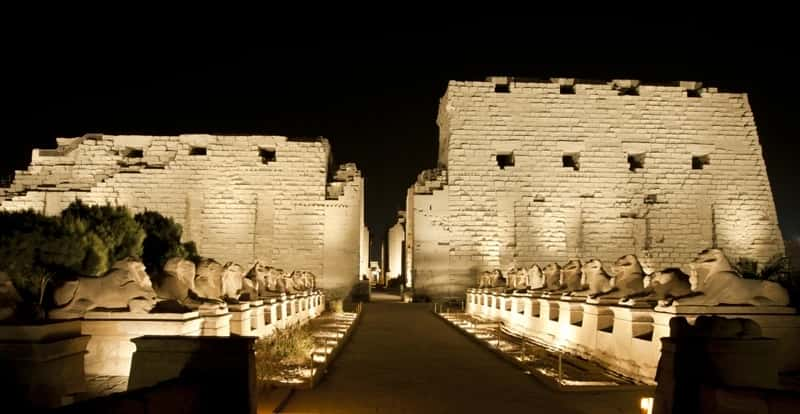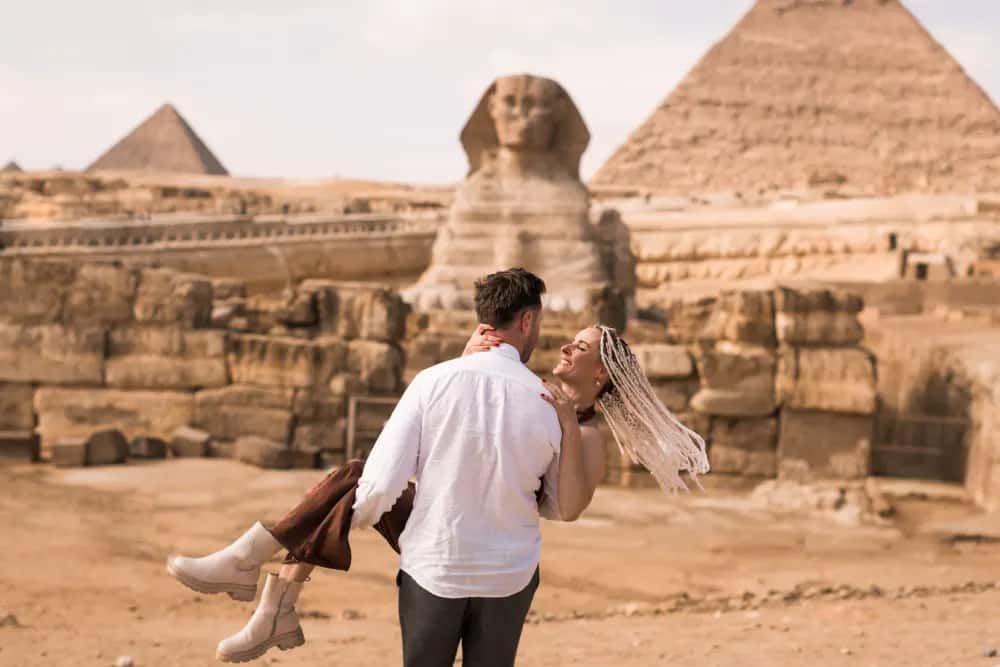
The Giza Pyramids are a stunning testament to the remarkable engineering skills of the ancient Egyptians. These iconic structures have captivated visitors for millennia, drawing countless tourists Till today. This article embarks on a journey to uncover the rich history, construction marvels, and enduring mysteries surrounding these monumental wonders.
Despite comprehensive studies, the Egypt Pyramids remain steeped in intrigue. How did the ancient Egyptians construct these colossal edifices with limited tools and technology? What secrets lie within the intricate tunnels and chambers? And what significance lies behind their meticulous design, crafted to ensure the safe passage of pharaohs into the afterlife? Join us as we unravel the mysteries veiled within these ancient monuments.
The Giza Pyramids were built during the Old Kingdom period of ancient Egypt, between 2580 and 2560 BC. They were designated by three pharaohs, Khufu, Khafre, and Menkaure, who ruled during this period. The Great Pyramid of Khufu, the largest of the three pyramids, is believed to have taken from 10 to 20 years to build, with an estimated workforce of 100,000 people.
The purpose behind constructing the colossal Giza Pyramids was to serve as tombs for the pharaohs, revered as divine entities in ancient Egypt. The pyramids are situated on the west bank of the Nile River, believed to be the land of the dead, and oriented towards the north star, closely associated with Osiris, the god of the afterlife.
The construction of the Giza Pyramids was an extraordinary feat, demanding vast resources and exceptional engineering finesse. The pyramids were built using large blocks of limestone and granite, quarried from nearby sources, and transported to the construction site using sledges and ramps.
The largest among the three, the Great Pyramid of Khufu, comprises over 2 million stone blocks, each averaging 2.5 tons. Towering at 147 meters (481 feet) and spanning 13.1 acres, the pyramid's estimated weight reaches a staggering 6.5 million tons.
One of the most impressive aspects of the Giza Pyramids is the precision of building the Pyramids. The sides of Khufu's Great Pyramid align impeccably with the cardinal points of the compass, deviating by less than 0.1 degrees. Internally, intricate corridors, chambers, and air shafts were ingeniously crafted, ensuring the pharaoh's protection and a secure journey to the afterlife.
As for the methods of block transportation and placement, scholarly debate persists. Some propose river-based transportation via the Nile, while others suggest a system of ramps and rollers as the means of movement.
The Giza Pyramids hold immense significance on multiple fronts. Firstly, they stand as a testament to the awe-inspiring engineering achievements of ancient Egyptians. The construction of these massive structures required Huge resources, organization, and planning, and stands as a testament to the ingenuity and perseverance of this ancient civilization.
Beyond engineering, these pyramids carried profound religious importance for the ancient Egyptians. Revered pharaohs were seen as divine custodians of Ma'at—the balance and order of the universe. Their tombs were sacred grounds where their physical bodies could endure eternally, enabling their spirits to perpetuate their divine responsibilities.
Additionally, these monumental structures symbolized the might and opulence of the pharaohs. Their construction demanded an enormous investment of resources, including the toil of countless laborers, reflected as a tangible manifestation of the pharaoh's prestige and affluence.
The enigmas surrounding the Pyramids endure, captivating all scholars and visitors through the ages. Among these mysteries lies the puzzle of how ancient Egyptians transported colossal stone blocks from quarries to the construction site. Theories propose methods ranging from sleds or rollers to intricate ramp systems or canals.
Another enigmatic aspect is the purpose behind the pyramid's air shafts. These passages, intended to guide the pharaoh's spirit skyward, remain wrapped by ambiguity. Some posit practical roles like ventilation or temperature regulation within the pyramid.
Moreover, the astonishing precision in pyramid construction poses a baffling question. Despite being erected over 4,500 years ago, the pyramids' sides maintain near-perfect accuracy, differing only by centimeters. Speculations span from advanced surveying techniques to celestial influences, such as astronomy, in achieving such remarkable precision.
Another puzzling aspect of the Giza Pyramids is the function of the elaborate tunnels and chambers nestled within. Primarily constructed as tombs for the revered pharaohs and their partners, these pyramids were repositories of treasures and offerings, ensuring a smooth transition into the afterlife.
Within these pyramids lay a labyrinth of passages and chambers meticulously devised to safeguard the pharaoh's essence. The mummified body of the ruler rested within a succession of coffins, ensconced in layers, while the adjacent chambers housed a wealth of offerings and riches.
The ancient Egyptians built pyramids for over a thousand years, often entombing their deceased under or within these massive structures. The ancient Egyptians began building pyramids during the reign of King Djoser (2630 to 2611 BC), who constructed the Step Pyramid at Saqqara, and the reign of King Ahmose I (reigned from 1550 to 1525 BC), who built the last known royal pyramid in Egypt at Abydos.
The iconic pyramids showcased the power and wealth of the pharaohs and promoted their religious beliefs. So why did the ancient Egyptians stop constructing pyramids shortly after the start of the New Kingdom era? Why did they start burying their pharaohs in the Valley of the Kings near the ancient Egyptian capital of Thebes, known today as Luxor, instead of pyramids?
Peter Der Manuelian, a Harvard University Egyptologist, told Live Science: "The exact reason for the pharaohs' cessation of building royal pyramids isn’t entirely clear, but there are many theories. However, since the pyramids were inevitably looted, this played a significant role in the pharaohs discontinuing their pyramid-building efforts."
Eidan Dodson, a University of Bristol Egyptologist, said: "Even before they abandoned pyramid-building for kings, they stopped placing burial chambers beneath the pyramids due to fears of looting, and the last pyramid for a king AhmoseI in Abydos—lies deep in the desert."
One of the historical records that may hold crucial evidence was penned by a man named Ineni; responsible for building the tomb of Thutmose I in the Valley of the Kings. Ineni wrote I was alone supervising the excavation of the tomb of Majesty; no one saw, no one heard. This record clearly indicates that secrecy was a primary consideration.
The natural terrain of the Valley of the Kings might explain why it emerged as a preferred royal burial site. Within this terrain, there is a peak now known as the horn, somewhat resembling a pyramid.
The Giza Pyramids are a testament to the incredible engineering feats of the ancient Egyptians and continue to fascinate visitors and scholars alike. These massive structures, which were built more than 4,500 years ago, stand as a symbol of the wealth and power of the pharaohs and serve as sacred spaces for the preservation of their bodies and the continuation of their divine duties.
Even after centuries of exploration, the enigma surrounding the Egypt Pyramids endures. From the intricate methods employed to move colossal stone blocks to the enigmatic purpose of the pyramid's air shafts, these mysteries persist, captivating minds worldwide. They continue as an endless source of inspiration, sparking fresh theories and discoveries and unveiling the fascinating realm of the ancient Egyptians and their astounding accomplishments.
Make sure you don't miss the chance to immerse yourself in the captivating history and culture of ancient Egypt at the Giza Pyramids. Secure your spot with one of our Egypt for Travel packages and embark on an unforgettable journey to this remarkable destination!
“In my opinion, I believe a good writer makes content easy to read, and entertains the reader, making comprehension effortless. Egypt is a country that truly has it all. Its rich history, stunning landscapes, and friendly people make it a must-visit destination for any traveler. I hope you'll have the opportunity to experience it for yourself.
By Egypt Travel Blogger
Embark on an extraordinary 5-day travel with our Cairo and Luxor Tour. Reserve your spot now and relish a complimentary ...
$ 599 | Per Person

Experience the finest with our 8 Days Cairo and Nile Cruise package, among the top-tier Best Egypt Tours. Uncover ancien ...
$ 1299 | Per Person

Enjoy the best 12 Day Egypt Private Tour & Visit the Great Pyramids of Giza and the marvelous Temples in luxor and Aswan ...
$ 1899 | Per Person

This 12 Day Cairo, Nile Cruise, Sharm El Sheikh tour in Christmas and New Year is the best option for you visiting the t ...
$ 2399 | Per Person

A romantic Egypt Honeymoon Trip. Visit the Pyramids and Sphinx with Nile cruise adventure in Luxor and Aswan watching li ...
$ 1199 | Per Person